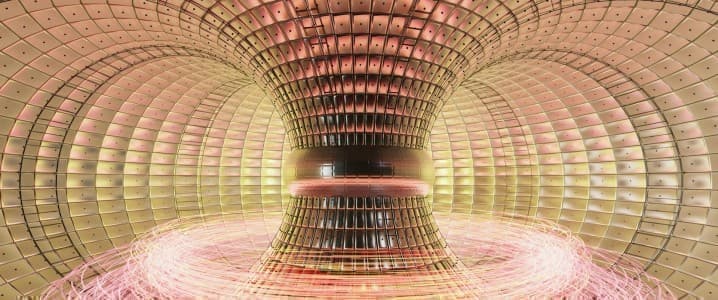Copyright OilPrice

Germany just made a huge bet on nuclear fusion, putting an exclamation point at the end of its historic u-turn on nuclear energy policy. A new action plan from Chancellor Friedrich Merz aims to ensure that the world’s first commercial fusion reactor and throws €1.7 billion ($1.98 billion) in funding behind the cause. The unexpected announcement is making major waves in what is already a conflicted political environment when it comes to energy planning. This announcement comes as something of a shock considering that Germany has been Europe’s staunchest nuclear energy opponent for years. Germany decommissioned its last three nuclear power plants offline in 2023, and has – until very recently – stood firmly unified in this resolve. "We have decided to phase out nuclear power. This has also been accepted by society," the nation’s Environment Minister Carsten Schneider told Deutsche Welle (DW) just a few months ago. "There are no further commitments [to the nuclear industry], nor will there be any," he went on to say. But cracks have been showing in that unified front for a while now. Back in May, German Economy Minister Katherina Reiche publicly said that she was "open to all technologies,” marking a major departure from Germany’s traditional stance. Even more surprising, Germany ceded its side of a long-standing nuclear energy cold war with France, agreeing to make peace with French officials by dropping anti-nuclear power rhetoric from European Union legislation. Even against this backdrop, however, Germany’s bid to become the preeminent global superpower for nuclear fusion technology is a surprising one. But though it’s politically fraught, the plan has logical strategic grounding. An ambitious approach to clean energy production is absolutely necessary if Germany has any hope of meeting its decarbonization goals. As Europe’s largest economy, Germany’s greenhouse gas footprint is also pivotal to the wider climate goals of the European Union. The pressure is on for the nation, which currently relies heavily on fossil fuels, to overhaul its energy mix in the coming years. Sarah Klein, commissioner for fusion research at the Fraunhofer Institute for Laser Technology in Aachen, told DW this week that investing in fusion technology is a "smart long?term strategic bet” that “keeps Germany at the forefront of a global technology race.” She added that in tandem with renewable energy development, nuclear fusion is “crucial for ensuring energy sovereignty after the phaseout of fossil fuels.” Germany’s policy shift comes as part of a sea change of nuclear energy sentiment in Europe and abroad. Just this year, Italy and Denmark began motions to overturn their respective 40-years ban on nuclear energy production, and the government of Spain indicated that they were considering extending the lives of domestic nuclear power plants slated for phaseout. The shift also comes at a time of major technological breakthroughs in the field of nuclear fusion science. Researchers around the world are racing to achieve commercially viable nuclear fusion, and they are getting closer all the time. China, in particular, is investing heavily in fusion research and development and aims to achieve viability by 2050. Labs in the United States are also breaking record after record for achieving net positive energy production from their laser-based fusion models. The ramifications of any country or project achieving commercial nuclear fusion are difficult to overstate. In the words of a Daily Galaxy report from earlier this year, “If China or any other nation succeeds in making fusion commercially viable, it could trigger an energy revolution, transforming how the world powers homes, industries, and even space exploration.” And, of course, it means a major geopolitical leg up for the country that gets there first. As a result, even Germany, once the world’s biggest anti-nuclear government, is now throwing its hat into the crowded ring. By Haley Zaremba for Oilprice.com More Top Reads From Oilprice.com Japan Tells Trump Tokyo Will Struggle to Ban Russian LNG Imports AI Energy Crunch: Hyperscalers Turn to Small Nuclear Reactors Honeywell Unveils New Biocrude Technology for Sustainable Fuel



